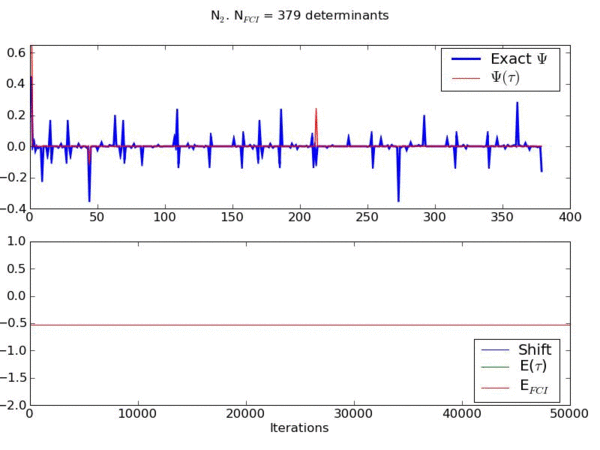Quantum Monte Carlo
Development of the full configuration interaction quantum Monte Carlo method
Instead of describing all possible states of a system, Monte Carlo (MC) methods rely on random numbers to sample the physically most relevant and representative ones and draw conclusions from them to understand the underlying physical properties of a system.
Full configuration interaction quantum Monte Carlo (FCIQMC) [1, 2, 3] is a QMC method to solve the Schrödinger equation of a system with very high accuracy and for comparatively large system sizes. It can obtain ground and excited states energies [4] , as well as static [5, 6] and dynamic properties[7] of ab initio problems, as well as lattice models, i.e., Hubbard [8] or Heisenberg Hamiltonians [9] .
The open-source repository of our FCIQMC code base NECI can be found here.

Example of an FCIQMC simulation for a model of streched N2 from http://www-alavi.ch.cam.ac.uk/